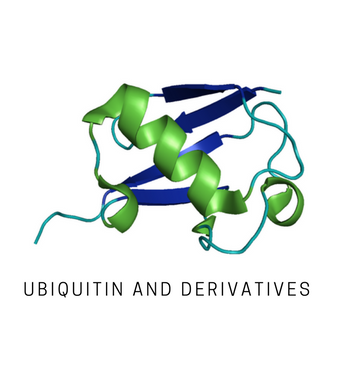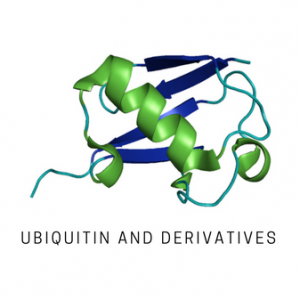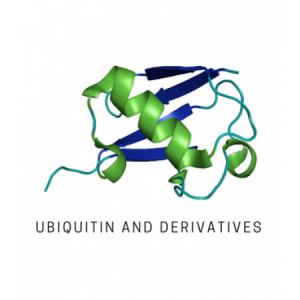Specifications
K11-linked ubiquitination is traditionally associated with cell cycle regulation and proteasomal degradation. Phospho-ubiquitin chains represent a specialized class of polyubiquitin characterized by phosphorylation at Serine 65 and play a central role in mitophagy signaling pathways. K11-linked ubiquitination is traditionally associated with cell cycle regulation and proteasomal degradation. K11 linkage appears to play an important role in cell cycle signaling, as it is associated with the anaphase promoting complex (APC).
K11 Tetra-Ubiquitin is a tetrameric chain of wild-type ubiquitin, wherein ubiquitin monomers are enzymatically linked together via an isopeptide bond between Lysine 11 and the C-terminal Glycine. These tetra ubiquitin are then biotinylated on an available cysteine that was mutated in one of the ubiquitins to allow for one biotin molecule to be attached.
Info
| Species | Human |
| Source | E. coli |
| Tag | Biotin |
| Molecular Weight | 34759 Da |
| Quantity | Variable |
| Concentration | Variable |
| Formulation | 20 mM Tris pH 7.5, 150 mM NaCl |
| Storage | -80°C, avoid freeze/thaw cycles |




Reviews
There are no reviews yet.